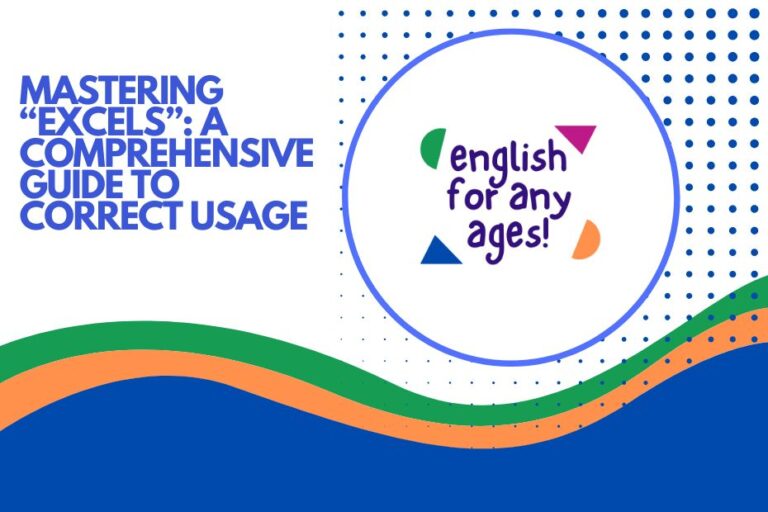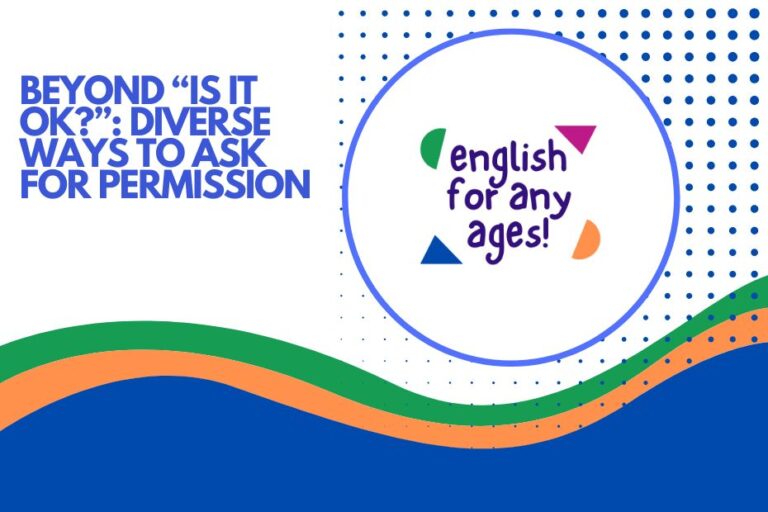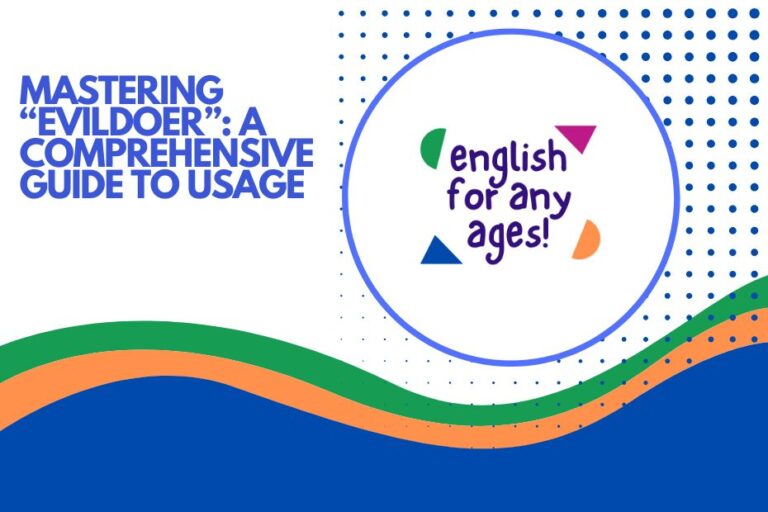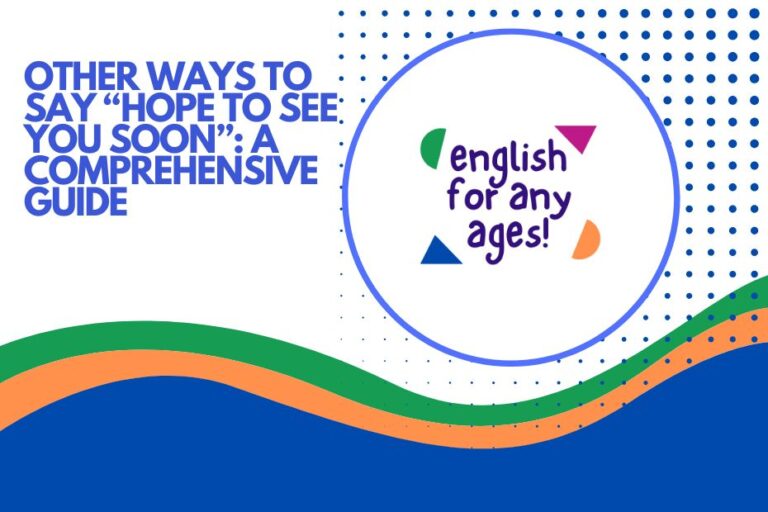Alternatives to “I Don’t Care”: Expanding Your English Vocabulary
Expressing indifference is a common need, but constantly using “I don’t care” can sound repetitive and even rude. Mastering alternative phrases allows you to convey disinterest in a more nuanced and sophisticated manner.
This article explores a wide range of expressions that effectively communicate apathy, boredom, or lack of concern. Whether you’re aiming for politeness, humor, or bluntness, understanding these options will significantly enhance your communication skills.
This guide is beneficial for English learners of all levels, from beginners seeking basic alternatives to advanced speakers aiming for subtle variations in tone.
By learning these phrases, you’ll be able to navigate social situations more effectively, avoid sounding dismissive, and add depth to your conversations. This article delves into the meaning, context, and usage of each expression, providing numerous examples and practice exercises to solidify your understanding and confident application.
Table of Contents
- Definition: Expressing Indifference
- Structural Breakdown of Common Phrases
- Types and Categories of Expressions
- Examples of “I Don’t Care” Alternatives
- Usage Rules and Considerations
- Common Mistakes to Avoid
- Practice Exercises
- Advanced Topics
- Frequently Asked Questions
- Conclusion
Definition: Expressing Indifference
Expressing indifference means communicating a lack of interest, concern, or enthusiasm towards a particular topic, situation, or person. It’s a common human emotion that can be conveyed through various verbal and non-verbal cues.
The phrase “I don’t care” is a direct and straightforward way to express this feeling, but its simplicity can sometimes come across as impolite or dismissive. Therefore, understanding alternative expressions is crucial for effective and appropriate communication.
Indifference can stem from various reasons, such as boredom, lack of knowledge, disagreement, or simply not being affected by the issue at hand. The way we express indifference should be tailored to the context and our relationship with the other person.
Using a sarcastic tone with a close friend might be acceptable, while a more polite approach is necessary in professional settings or when speaking to someone you don’t know well.
The classification of expressions of indifference falls under the broader category of declarative statements, as they state a feeling or opinion. Their function can range from simply conveying information to expressing disagreement or even causing offense, depending on the chosen phrase and delivery. The context is key in determining the appropriateness and impact of these expressions.
Structural Breakdown of Common Phrases
Understanding the structure of common phrases that express indifference can help you use them correctly and adapt them to different situations. Let’s examine the structural elements of some frequently used expressions:
- “I don’t care.” This is the simplest and most direct structure. It consists of the subject pronoun “I,” the auxiliary verb “do” in its negative form, and the verb “care.”
- “It doesn’t matter to me.” This phrase uses an impersonal subject “it” and the verb “matter” to express that something is unimportant to the speaker. The prepositional phrase “to me” clarifies who is unaffected.
- “I couldn’t care less.” This is an idiomatic expression that uses a negative construction to emphasize the lack of care. The phrase implies that it’s impossible to care any less than the speaker already does.
- “Whatever.” This is a single-word expression that conveys indifference or resignation. It can be used as a response to a statement or request, implying that the speaker is not concerned with the outcome.
- “So what?” This is a question that challenges the importance or relevance of something. It indicates that the speaker does not see the significance of the issue being discussed.
By analyzing these structures, you can see how different grammatical elements contribute to the overall meaning of indifference. You can also use this knowledge to create your own variations and tailor your expressions to specific situations.
Types and Categories of Expressions
Expressions of indifference can be categorized based on their level of formality, tone, and directness. Understanding these categories can help you choose the most appropriate phrase for a given situation.
Polite Alternatives
These phrases are suitable for formal settings or when speaking to people you don’t know well. They convey indifference without being offensive or dismissive.
Polite alternatives soften the impact of expressing disinterest. They are especially useful in professional environments, when interacting with superiors, or when you simply want to maintain a respectful tone.
These phrases often involve indirectness or the expression of a neutral opinion rather than outright apathy.
Informal Alternatives
These phrases are appropriate for casual conversations with friends, family, or close colleagues. They are more relaxed and conversational than polite alternatives.
Informal alternatives are more direct than the polite ones, but they still avoid being overly harsh or offensive. These phrases are perfect for everyday conversations where you want to express your lack of interest in a lighthearted way.
They contribute to a more relaxed and friendly atmosphere.
Sarcastic Alternatives
These phrases use irony or mockery to express indifference. They should be used with caution, as they can be easily misinterpreted or cause offense.
Sarcastic alternatives are best reserved for situations where you’re comfortable with the other person’s sense of humor and the overall tone of the conversation is light and playful. These phrases can add a humorous edge to your expression of indifference, but they should be used judiciously to avoid hurting anyone’s feelings.
Blunt Alternatives
These phrases are direct and to the point, leaving no room for ambiguity. They should be used sparingly and only when the situation calls for it, as they can be considered rude or insensitive.
Blunt alternatives are the most direct way to express indifference. While they are clear and unambiguous, they should be used with caution as they can easily be perceived as rude or dismissive.
These phrases are best reserved for situations where directness is necessary and you are willing to risk potentially offending someone.
Indirect Alternatives
These phrases imply indifference without explicitly stating it. They can be a more subtle and tactful way to express a lack of interest.
Indirect alternatives are a great way to express indifference without being overtly negative. These phrases allow you to communicate your disinterest in a subtle and nuanced way, making them suitable for situations where you want to avoid confrontation or maintain a polite tone.
Examples of “I Don’t Care” Alternatives
This section provides extensive examples of different phrases you can use instead of “I don’t care,” categorized by their level of formality and tone.
Polite Examples
Polite alternatives are essential in professional or formal settings where maintaining decorum is crucial. These phrases often focus on neutrality or a lack of personal impact rather than outright disinterest.
The following table provides examples of polite alternatives to “I don’t care,” along with example sentences showing how they can be used in context.
| Phrase | Example Sentence |
|---|---|
| It’s not really my concern. | “While I understand the issue, it’s not really my concern as it falls outside my department.” |
| That’s not my area of expertise. | “I’m afraid that’s not my area of expertise, so I can’t offer much input on that.” |
| I don’t have a strong opinion either way. | “Regarding the new policy, I don’t have a strong opinion either way; I’m happy to go with the majority.” |
| It doesn’t particularly affect me. | “The proposed changes don’t particularly affect me, so I’m not too worried about them.” |
| I’m not really involved in that. | “I’m not really involved in that project, so I’m not up to date on the latest developments.” |
| I’m not the best person to ask. | “I’m not the best person to ask about that; perhaps you should speak to Sarah.” |
| That’s not something I’m focused on right now. | “That’s not something I’m focused on right now, as I have other priorities.” |
| I’m not particularly interested in that. | “While I appreciate the offer, I’m not particularly interested in that opportunity.” |
| I’ll leave that to the experts. | “I’ll leave that to the experts; they know more about it than I do.” |
| That’s not something I’m passionate about. | “That’s not something I’m passionate about, so I haven’t given it much thought.” |
| I’m neutral on the matter. | “I’m neutral on the matter and will support whatever decision is made.” |
| It’s not something I’ve given much thought to. | “It’s not something I’ve given much thought to, to be honest.” |
| I’m not really following that. | “I’m not really following that discussion, so I don’t have an opinion.” |
| I have no preference. | “I have no preference; you can choose whichever option you prefer.” |
| It’s all the same to me. | “Honestly, it’s all the same to me, so do what you think is best.” |
| I’m fine with either option. | “I’m fine with either option; just let me know what you decide.” |
| That’s not really my area. | “That’s not really my area; maybe check with the marketing team.” |
| I haven’t been paying attention to that. | “I haven’t been paying attention to that, so I’m not sure what’s going on.” |
| I’m not well-informed enough to comment. | “I’m not well-informed enough to comment on that issue.” |
| I’m not in a position to say. | “I’m not in a position to say, as I don’t have all the facts.” |
| I’m not the right person to ask about this. | “I’m not the right person to ask about this, perhaps John knows more.” |
| That doesn’t really concern me. | “That decision doesn’t really concern me, as it doesn’t affect my work.” |
| I’m not taking a position on that. | “I’m not taking a position on that, as I need more information.” |
Informal Examples
Informal alternatives are perfect for relaxed conversations with friends and family. These phrases are more casual and direct, but still avoid being overly harsh.
This table presents a variety of informal ways to say “I don’t care,” suitable for casual conversations with friends and family.
| Phrase | Example Sentence |
|---|---|
| Whatever. | “Are you going to clean your room?” – “Whatever.” |
| I don’t mind. | “Do you want pizza or burgers?” – “I don’t mind, you choose.” |
| It’s all the same to me. | “We can go to the movies or stay home.” – “It’s all the same to me.” |
| I couldn’t care less. | “He’s always complaining.” – “I couldn’t care less.” |
| So? | “She didn’t invite me to her party.” – “So?” |
| Who cares? | “He got a bad grade on the test.” – “Who cares?” |
| Doesn’t bother me. | “They’re playing loud music.” – “Doesn’t bother me.” |
| I’m not fussed. | “Do you want tea or coffee?” – “I’m not fussed, either is fine.” |
| Don’t care. | “She’s dating my ex.” – “Don’t care.” |
| It’s not a big deal. | “I spilled some coffee.” – “It’s not a big deal, I’ll clean it up.” |
| It’s whatever. | “He said he doesn’t like me.” – “It’s whatever.” |
| I’m easy. | “Where should we go for dinner?” – “I’m easy, you decide.” |
| Not my problem. | “The printer’s broken.” – “Not my problem, call IT.” |
| Not my business. | “They’re arguing again.” – “Not my business.” |
| I’m good. | “Do you want to help?” – “I’m good, thanks.” |
| Suits me. | “We’re leaving at 8 AM.” – “Suits me.” |
| Fine by me. | “We’re changing the meeting time.” – “Fine by me.” |
| I’m not bothered. | “She didn’t say thank you.” – “I’m not bothered.” |
| No skin off my nose. | “They’re raising the prices.” – “No skin off my nose.” |
| Whatever floats your boat. | “He wants to wear that ridiculous outfit.” – “Whatever floats your boat.” |
| I’m not invested in this. | “They’re having a debate.” – “I’m not invested in this.” |
| It’s your call. | “Should we tell him or not?” – “It’s your call.” |
| I’m not losing sleep over it. | “He didn’t get the promotion.” – “I’m not losing sleep over it.” |
Sarcastic Examples
Sarcastic alternatives should be used with caution, as they rely on tone and context. They are best suited for situations where the other person understands your sense of humor.
The following table illustrates how sarcasm can be used to express indifference, along with example sentences.
| Phrase | Example Sentence |
|---|---|
| Oh, really? Tell me more. | “He’s been talking about his new car for an hour.” – “Oh, really? Tell me more.” (said with a bored tone) |
| I’m on the edge of my seat. | “She’s going to tell us all about her vacation.” – “I’m on the edge of my seat.” (said dryly) |
| That’s fascinating. | “He’s explaining the intricacies of quantum physics.” – “That’s fascinating.” (said with disinterest) |
| I’m so thrilled to hear that. | “He’s complaining about his minor inconveniences.” – “I’m so thrilled to hear that.” (said insincerely) |
| You don’t say. | “He told me he’s the best at everything.” – “You don’t say.” (said sarcastically) |
| That’s just what I wanted to hear. | “She’s telling me all her problems again.” – “That’s just what I wanted to hear.” (said with a sigh) |
| I’m all ears. | “He’s about to launch into another long story.” – “I’m all ears.” (said with a lack of enthusiasm) |
| How exciting. | “They’re planning a mandatory team-building activity.” – “How exciting.” (said without genuine excitement) |
| I’m deeply moved. | “He’s trying to guilt-trip me into helping him.” – “I’m deeply moved.” (said sarcastically) |
| That’s life-changing. | “He’s telling me about his new coffee maker.” – “That’s life-changing.” (said with a hint of mockery) |
| I’m hanging on your every word. | “She’s explaining something incredibly boring.” – “I’m hanging on your every word.” (said ironically) |
| This is riveting. | “He’s describing his commute in detail.” – “This is riveting.” (said sarcastically) |
| I’m captivated. | “She’s telling a long, pointless story.” – “I’m captivated.” (said with feigned interest) |
| I’m just dying to know more. | “He’s about to explain his complicated theory.” – “I’m just dying to know more.” (said with sarcasm) |
| This is exactly what my day needed. | “He’s complaining about something trivial.” – “This is exactly what my day needed.” (said sarcastically) |
| Can’t wait to hear all about it. | “She’s going to tell me about her shopping trip.” – “Can’t wait to hear all about it.” (said without sincerity) |
| I’m so glad you told me. | “He’s sharing some completely irrelevant information.” – “I’m so glad you told me.” (said with sarcasm) |
| My life is now complete. | “He’s revealing some insignificant detail.” – “My life is now complete.” (said ironically) |
| This is earth-shattering news. | “He’s talking about his minor achievement.” – “This is earth-shattering news.” (said sarcastically) |
| I’m beside myself with excitement. | “She’s planning a boring activity.” – “I’m beside myself with excitement.” (said sarcastically) |
Blunt Examples
Blunt alternatives are direct and leave no room for interpretation. Use them sparingly and only when necessary, as they can be perceived as rude.
This table shows some blunt ways to express “I don’t care,” along with example sentences that demonstrate their directness.
| Phrase | Example Sentence |
|---|---|
| I don’t give a damn. | “He’s threatening to quit.” – “I don’t give a damn.” |
| I couldn’t care less. | “She’s upset that I didn’t call.” – “I couldn’t care less.” |
| Who gives a damn? | “He’s complaining about his salary.” – “Who gives a damn?” |
| So what? | “She said she doesn’t like me.” – “So what?” |
| Big deal. | “He got a promotion.” – “Big deal.” |
| I don’t care at all. | “They’re gossiping about you.” – “I don’t care at all.” |
| It’s nothing to me. | “The company is downsizing.” – “It’s nothing to me, I’m leaving soon anyway.” |
| I’m not interested. | “Do you want to hear my opinion?” – “I’m not interested.” |
| I don’t want to know. | “She’s about to tell me a secret.” – “I don’t want to know.” |
| I don’t want to hear it. | “He’s going to complain about his problems.” – “I don’t want to hear it.” |
| I’m done with this. | “They’re still arguing.” – “I’m done with this.” |
| Get over it. | “He’s still upset about what happened.” – “Get over it.” |
| Move on. | “She can’t let go of the past.” – “Move on.” |
| I’m over it. | “They’re still talking about that mistake.” – “I’m over it.” |
| Enough. | “They’re nagging me.” – “Enough.” |
| I’m serious. | “He thinks I’m joking.” – “I’m serious, I don’t care.” |
| I mean it. | “She thinks I’m lying.” – “I mean it, I don’t care.” |
| Seriously, I don’t care. | “They’re trying to make me feel guilty.” – “Seriously, I don’t care.” |
| I’m not kidding. | “He thinks I’m exaggerating.” – “I’m not kidding, I don’t care.” |
| Forget about it. | “She’s dwelling on a minor issue.” – “Forget about it.” |
Indirect Examples
Indirect alternatives allow you to express indifference without explicitly stating it, making them a more tactful choice in certain situations. These are often subtle and require the listener to infer your disinterest.
The following table shows indirect ways to express indifference, using subtle language to convey a lack of concern.
| Phrase | Example Sentence |
|---|---|
| That’s interesting. | “He’s explaining his complex theory.” – “That’s interesting.” (said without further engagement) |
| Okay. | “She told me her problems.” – “Okay.” (said without empathy) |
| Right. | “He’s trying to convince me of something.” – “Right.” (said dismissively) |
| I see. | “She’s explaining her point of view.” – “I see.” (said without agreement) |
| Sure. | “He’s asking for my opinion.” – “Sure.” (said without genuine interest) |
| If you say so. | “He’s claiming to be an expert.” – “If you say so.” (said doubtfully) |
| Whatever you think. | “She’s imposing her decision on me.” – “Whatever you think.” (said resignedly) |
| As you wish. | “He’s demanding something unreasonable.” – “As you wish.” (said sarcastically) |
| Do as you please. | “She’s ignoring my advice.” – “Do as you please.” (said with indifference) |
| It’s up to you. | “He’s asking for my guidance.” – “It’s up to you.” (said without providing direction) |
| Your call. | “Should we tell him or not?” – “Your call.” (said without taking responsibility) |
| I’ll let you decide. | “He’s asking for my input.” – “I’ll let you decide.” (said without offering help) |
| I trust your judgment. | “She’s seeking my approval.” – “I trust your judgment.” (said without genuine confidence) |
| I’m sure you know what you’re doing. | “He’s embarking on a risky venture.” – “I’m sure you know what you’re doing.” (said skeptically) |
| Good luck with that. | “She’s attempting something difficult.” – “Good luck with that.” (said without much hope) |
| I hope it works out. | “He’s starting a new project.” – “I hope it works out.” (said without much enthusiasm) |
| We’ll see. | “He’s making a promise.” – “We’ll see.” (said with skepticism) |
| Time will tell. | “She’s predicting the future.” – “Time will tell.” (said without agreement) |
| That remains to be seen. | “He claims to be the best.” – “That remains to be seen.” (said doubtfully) |
| Let’s just leave it at that. | “They’re arguing about something pointless.” – “Let’s just leave it at that.” (said to end the conversation) |
Usage Rules and Considerations
When choosing an alternative to “I don’t care,” it’s important to consider the following usage rules and contextual factors:
- Formality: Choose polite alternatives in formal settings, such as professional environments or when speaking to superiors. Use informal alternatives in casual conversations with friends and family.
- Tone: Be mindful of your tone of voice. Sarcastic alternatives can be easily misinterpreted if your tone is not clear. Blunt alternatives should be used with caution, as they can be perceived as rude.
- Relationship: Consider your relationship with the other person. Sarcastic or blunt alternatives are more appropriate with people you know well and who understand your sense of humor.
- Context: Evaluate the situation and the topic being discussed. Some topics may require a more sensitive approach, while others may allow for a more direct expression of indifference.
- Cultural Sensitivity: Be aware of cultural differences in communication styles. What is considered acceptable in one culture may be offensive in another.
By taking these factors into account, you can ensure that your expression of indifference is appropriate and effective.
Common Mistakes to Avoid
Here are some common mistakes to avoid when using alternatives to “I don’t care”:
- Using sarcastic alternatives in formal settings: Sarcasm is often inappropriate in professional environments and can damage your credibility.
- Using blunt alternatives with strangers: Being overly direct with people you don’t know can be perceived as rude and create a negative impression.
- Misinterpreting the meaning of idiomatic expressions: Make sure you understand the correct meaning and usage of idiomatic phrases before using them.
- Ignoring non-verbal cues: Pay attention to the other person’s body language and facial expressions. If they seem uncomfortable, adjust your approach accordingly.
- Being consistently negative: Constantly expressing indifference can make you appear apathetic and uninterested in others.
Here are some examples of common mistakes and their corrections:
| Incorrect | Correct | Explanation |
|---|---|---|
| “I’m on the edge of my seat!” (said to your boss about a boring project update) | “That’s interesting. I’ll certainly keep that in mind.” | Sarcasm is inappropriate in a professional setting. |
| “I don’t give a damn!” (said to a stranger who bumped into you) | “Excuse me, please be more careful.” | Bluntness can be offensive to strangers. |
| “I’m not fussed.” (said in a formal business meeting) | “I don’t have a strong preference at this time.” | “Not fussed” is too informal for a business meeting. |
Practice Exercises
Test your understanding of “I don’t care” alternatives with these practice exercises. Choose the most appropriate phrase from the options provided to complete each sentence.
Exercise 1: Polite Alternatives
Choose the most appropriate polite alternative to complete each sentence.
| Question | Options | Answer |
|---|---|---|
| “I’m not sure about the new marketing strategy.” “Well, ________, so I’m not too concerned.” | A) I couldn’t care less. B) It’s not really my concern. C) Whatever. | B) It’s not really my concern. |
| “Do you have any input on the budget cuts?” “________. I trust the finance department’s decisions.” | A) I don’t give a damn. B) I’m neutral on the matter. C) Who cares? | B) I’m neutral on the matter. |
| “They’re changing the company policy.” “________, as long as it doesn’t affect my work.” | A) It’s all the same to me. B) So what? C) I’m not particularly interested in that. | C) I’m not particularly interested in that. |
| “Are you worried about the merger?” “________; I’ll leave that to the management team.” | A) I’m on the edge of my seat. B) I’ll leave that to the experts. C) Big deal. | B) I’ll leave that to the experts. |
| “They’re discussing the new regulations.” “________; I haven’t been following the details.” | A) I’m not really following that. B) Who cares? C) Doesn’t bother me. | A) I’m not really following that. |
| “Do you have a preference for the venue?” “________; either location is fine with me.” | A) I have no preference. B) I don’t give a damn. C) Whatever. | A) I have no preference. |
| “They’re arguing about the project deadline.” “________, as I have other priorities.” | A) Get over it. B) That’s not something I’m focused on right now. C) So what? | B) That’s not something I’m focused on right now. |
| “Are you concerned about the rumors?” “________; I’m focusing on my own work.” | A) I’m not really involved in that. B) I’m so thrilled to hear that. C) Who cares? | A) I’m not really involved in that. |
| “Do you want to join the committee?” “________; perhaps you should ask someone else.” | A) I’m not the best person to ask. B) Oh, really? Tell me more. C) I couldn’t care less. | A) I’m not the best person to ask. |
| “They’re implementing a new software.” “________; |






